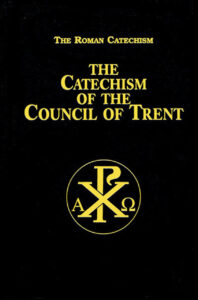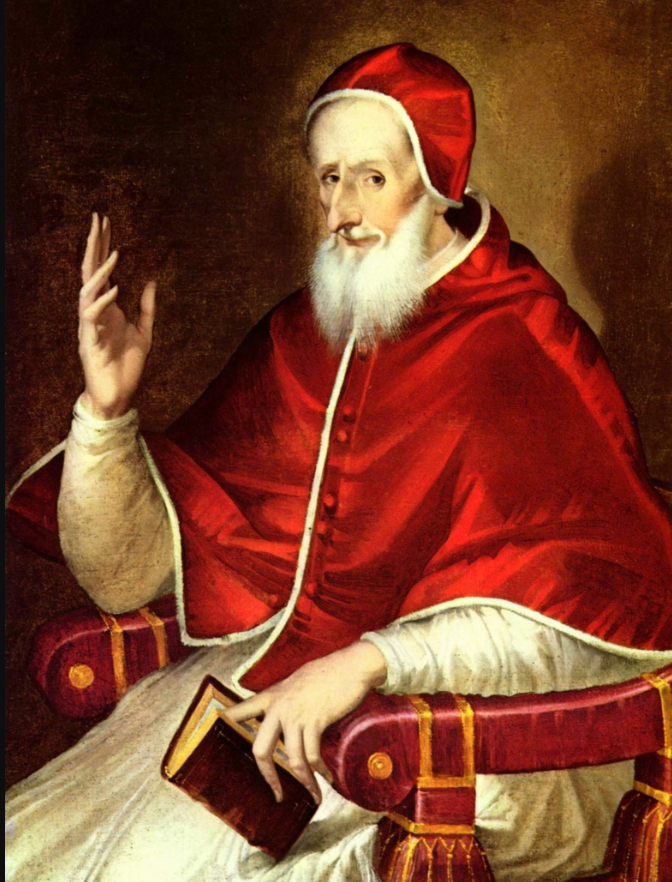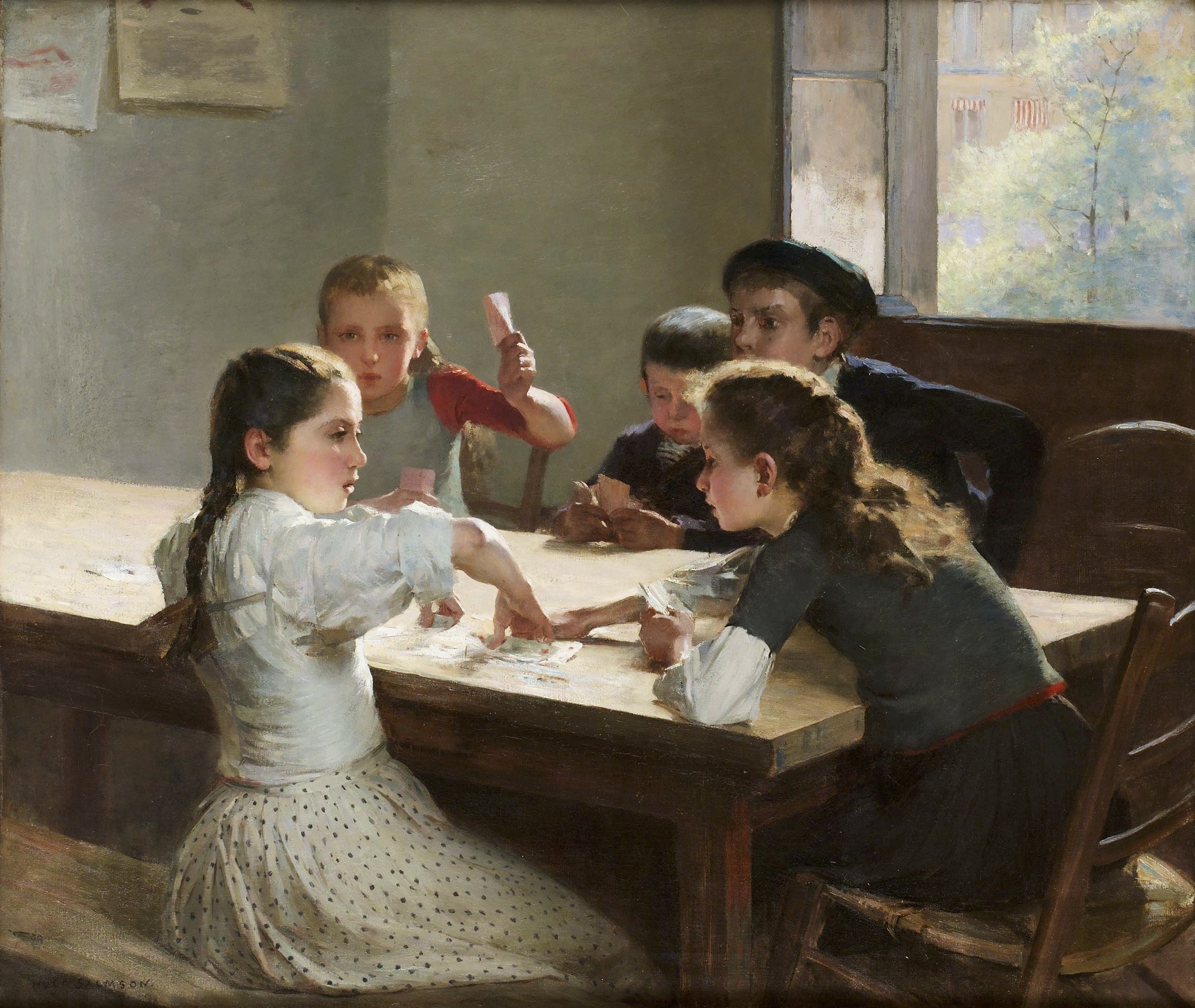The holy Fathers have taught us many means whereby to subdue the passions and to restrain sinful pleasure. The pastor, therefore, should make it his study to explain these accurately to the faithful, and should use the utmost diligence in their exposition. Of these means some are reflections, others are active measures.
Impurity Excludes From Heaven
The first kind consists chiefly in our forming a just conception of the filthiness and evil of this sin; for such knowledge will lead one more easily to detest it. Now the evil of this crime we may learn from the fact that, on account of it, man is banished and excluded from the kingdom of God, which is the greatest of all evils.
Impurity Is a Filthy Sin
The above-mentioned calamity is indeed common to every mortal sin. But what is peculiar to this sin is that fornicators are said to sin against their own bodies, according to the words of the Apostle: Fly fornication. Every sin that a man doth is without the body; but he that committeth fornication, sinneth against his own body. (1 Cor. 6:18). The reason is that such a one does an injury to his own body by violating its sanctity. Hence St. Paul, writing to the Thessalonians, says: This is the will of God, your sanctification; that you should abstain from fornication, that every one of you should know how to possess his vessel in sanctification and honour; not in the passion of lust, like the Gentiles that know not God. (1 Thess. 4:3–5).
Furthermore, what is still more criminal, the Christian who shamefully sins with a harlot makes the members of Christ the members of a harlot, according to these words of St. Paul: Know you not that your bodies are the members of Christ? Shall I then take the members of Christ and make them the members of a harlot? God forbid. Or know you not, that he who is joined to a harlot is made one body? (1 Cor. 6:15, 16). Moreover, a Christian, as St. Paul testifies, is the temple of the Holy Ghost (1 Cor. 6:19); and to violate this temple is nothing else than to expel the Holy Ghost.
Adultery Is A Grave Injustice
But the crime of adultery involves that of grievous injustice. If, as the Apostle says, they who are joined in wedlock are so subject to each other that neither has power or right over his or her body, but both are bound, as it were, by a mutual bond of subjection, the husband to accommodate himself to the will of the wife, the wife to the will of the husband; most certainly if either dissociate his or her person, which is the right of the other, from him or her to whom it is bound, the offender is guilty of an act of great injustice and wickedness. (1 Cor. 7:4).
Adultery Is Disgraceful
As dread of disgrace strongly stimulates to the performance of duty and deters from the commission of crime, the pastor should also teach that adultery brands its guilty perpetrators with an unusual stigma. He that is an adulterer, says Scripture, for the folly of his heart shall destroy his own soul: he gathereth to himself shame and dishonour, and his reproach shall not be blotted out. (Prov. 6:32).
Impurity Severely Punished
The grievousness of the sin of adultery may be easily inferred from the severity of its punishment. According to the law promulgated by God in the Old Testament, the adulterer was stoned to death. (Lev. 20:10; John 8:5). Nay more, because of the criminal passion of one man, not only the perpetrator of the crime, but a whole city was destroyed, as we read with regard to the Sichemites. (Gen. 34:25). The Sacred Scriptures abound with examples of the divine vengeance, such as the destruction of Sodom and of the neighboring cities (Gen. 19:24), the punishment of the Israelites who committed fornication in the wilderness with the daughters of Moab (Num. 25:4), and the slaughter of the Benjamites. (Judges 20). These examples the pastor can easily make use of to deter men from shameful lust.
Impurity Blinds The Mind And Hardens The Heart
But even though the adulterer may escape the punishment of death, he does not escape the great pains and torments that often overtake such sins as his. He becomes afflicted with blindness of mind, a most severe punishment; he is lost to all regard for God, for reputation, for honor, for family, and even for life; and thus, utterly abandoned and worthless, he is undeserving of confidence in any matter of moment, and becomes unfitted to discharge any kind of duty.
Of this we find examples in the persons of David and of Solomon. David had no sooner fallen into the crime of adultery than he degenerated into a character the very reverse of what he had been before; from the mildest of men he became so cruel as to consign to death Urias, one of his most deserving subjects. (2 Kings 11; 12). Solomon, having abandoned himself to the lust of women, gave up the true religion to follow strange gods. (3 Kings 11). This sin, therefore, as Osee observes, takes away man’s heart and often blinds his understanding. (Osee 4:11).
This article is taken from a chapter in The Catechism of the Council of Trent by Pope Pius V, which is available from TAN Books.









